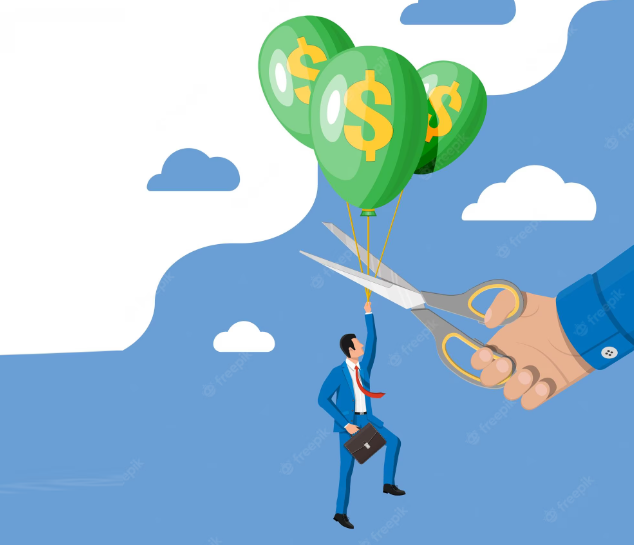
An increasing number of investors believe that active engagement and ownership on sustainability issues can make them responsible owners and better stewards of their own and clients’ assets.
This is no exception in Asia. But, there are nuances to engaging a company in the region to drive tangible outcomes on issues that are materially important for the long term.
Sophia Cheng, Chief Investment Officer at Cathay Financial Holdings, says: “If you don’t understand Asian culture, you give in more than half of that result from your engagement efforts.” While her prowess in sustainable development is rooted in experience gained abroad, she localizes it just for Asian investees.
Engagement is Partnership
“Outside of responsible investment, engagement can mean an agreement to get married,” Cheng says, in jest. “Then, if engagement is about lining up two parties, investors and investees should be partners for the same goals, at least until they reach them. Why would stirring up arguments be ‘engagement’?”
In the market, some investors choose to make noise to pressure a company to change for the better. There are multiple ways to escalate: from writing open letters, to voting out all directors and reforming the board, and lastly by selling the holding. But Cheng suggests better ways to deal with companies to avoid adverse reactions from them.
She says: “If we simply stand there, state our name with our share ownership in a company at annual general meetings. This way isn’t leading us anywhere in Asia – the owners will find it humiliating and companies will close their doors and shun away our questions.”
As the Board Committee Chair of Asia Investor Group on Climate Change, Cheng has recently been encouraging fellow asset managers and owners to escalate their engagement with companies. “As an investor, I could do so to escalate. But take a step back. The prerequisite of creating an engagement program is that I know about a company’s abilities and constraints through and through and know so well that they are capable of achieving those goals. What we lack is their willingness.”
Doing Things Sustainably Takes (Much) Time
Sustainability revolves around things we prepare for the long term and many of those works cannot be done overnight. Divestment is unlikely to alter behaviors, as well, she thinks.
“What’s important for us to continue to bring impacts is that we always have a dialogue. If you make an Asian company slam the door, there’s nothing left you can do but protest outside their headquarters. This isn’t making an impact.”
If influencing others to change for the better isn’t the toughest work in engagement, what is? Cheng points to the beginning of an engagement, and says: “It’s normal for one without knowing the advantages of sustainability to be uninterested. To begin with, they have no obligations to listen to me.”
With her humble lobbying style, Cheng thinks escalation doesn’t always equate to divestment. A dialogue with an investee’s more senior members or sending senior members at a fund to influence them could work. “Imagine every asset manager sends their global CIO to call up every one of their investees and think about the scale of the impact it will create.”
She continues: “It is pertinent to show them you come with a very good intention. Because if investees reject to change, businesses will be gone after. To those business owners, there is nothing more severe than that.”
This attitude of Cheng and efforts by Cathay influenced the largest petrochemical conglomerate in Taiwan, Formosa Plastics Group, and its other arms to commit to carbon neutrality by 2050.
The Climate Action 100+ initiative was launched at the end of 2017, which is aimed at engaging with the world’s 166 largest greenhouse gas emitting companies. The initiative underscores international investors’ concerns about the net-zero transition in companies with high climate-related risks. In the initiative, Cathay is one of the signatories and has engaged with three focus companies in Taiwan. They are: Formosa Petrochemical, China Steel, and Hon Hai Precision.
According to company filings, Formosa Group tops other conglomerates in terms of carbon emission in 2022. Its subsidiaries, such as Formosa Petrochemical, Formosa Plastics, Formosa Chemicals & Fibre, and Nan Ya Plastics, were among the top 10 emitters in Taiwan. Cathay’s other engagement targets, such as China Steel and Hon Hai Precision, which also made to the list, had the same climate pledge.
Cathay’s First Lesson
While Cheng is known as the first generation of homegrown ESG advocates in the financial industry, her unassuming vision of sustainable development is simple. That is “how to live another 100 years.”
That also means sustainability is an innate social responsibility for financial institutions. “Say Cathay Financial is selling you a life insurance policy today. We promise to have your back and to do so, we need to outlive you. Otherwise, that protection comes as an empty promise,” says Cheng.
Though Cathay Financial Holdings is a pioneer in responsible investing in Taiwan, it didn’t start by bringing its A-game to the effort.
“In 2014, a Dutch pension fund reached out to inform us that Cathay’s ESG score sits at the bottom quartile [of all its portfolio holdings]. They will have to divest from us if we were to stay in that bracket for two years in a row. With much disagreement, we requested to review on what we scored zero. Only until then, even though we have those reportings available, we realized our disclosures were in fact not easy to find. The format, reporting style, and depth were not up to international practice.”
There’s more to it, than just scoring, she said.
This enlightening experience propelled Cheng to pay a visit to the investor. As soon as she entered the fund’s office in the Netherlands, she was greeted by a ball pit. "In this pool, everyone can choose a ball and write down their thoughts, ideas, and complaints. Isn’t it the best employee inclusion?” That was the start when Cheng learned about responsible investment.
“The lesson is influencing a company is through helping them understand better,” she adds. Importantly, knowledge can be acquired in many ways – from employees, customers, suppliers, and more.
These experiences set her engagement style for the decade that followed.
She advocates that setting sustainable goals and frameworks isn’t enough, but investors should provide means for them to implement them easier, not harder. This has to be started by engaging investors willing to learn and prepare earlier and to make it easy to understand for those who want to be part of it.
“Companies think we love everyone to take on a net-zero transition journey and argue if anyone is willing to become their shareholder in a lossmaking firm for three years in a row because of the transition. The answer is no. So investors like us have to look at everything from a company’s point of view, including how to do, whether they have the equipment, and where they’re at.” This can be done by providing convenient toolkits for measurement as well as sharing them with case studies from around the world.
What’s For the Next Decades?
Because of her devotion to sustainability, Cheng has become accustomed to thinking about what will be important in the next five years, and what isn’t done in three years will be too late for humanity.
Three years ago she began advocating for individuals and companies to get early in the renewable game.
“In my speeches, I always asked people to do themselves a favor and buy green energy. I said if you don’t switch to it soon enough, you will complain, and in five years, all green energy is bought up by mega-scale corporates and traded more expensively. There’s nothing more pricey than carbon credit.” Three years later, the price of carbon credit per ton – in February surpassing the 100 euro mark in Europe – has exceeded her forecast.
Pondering what’s next for investors, Cheng names two things to watch.
First, how will the efficiency of recycling change over time?
“We are glad to hear more talks about creating a circular economy,” she says. “A caveat, though, is that circular means not letting the waste leave the system and reusing them in other forms. But, when you take more waste to recycle, your future source for recycling will become less and less.” She said companies should be thinking proactively about what their industry will lack in the future in terms of natural resources.
When the world is transitioning to net zero, how will sustainability impact an economy? “For Taiwan, realistically speaking, climate change is a national security issue,” she says.
“Taiwan is export-oriented. Someday a supplier customer may ask the Taiwanese industry to produce T-shirts and sports shoes that emit net-zero carbon. If Taiwan cannot provide it, the supplier customer will look for it elsewhere. These companies will have to rather pay more to reach their low-carbon goals. By that time, export orders will be gone, and Taiwanese companies will also be ousted from the supply chain.” This example demonstrates that a failure in net-zero transition will hit an important industry quite negatively.
As her favorite line goes, “No ESG, No Money”. Cheng expects governments and companies alike to be more motivated to proactively think about sustainability issues. She also foresees, using science-based research and analysis as the foundation, more interdisciplinary collaborations among policymakers, business, and academia.












.png)



.jpg)





